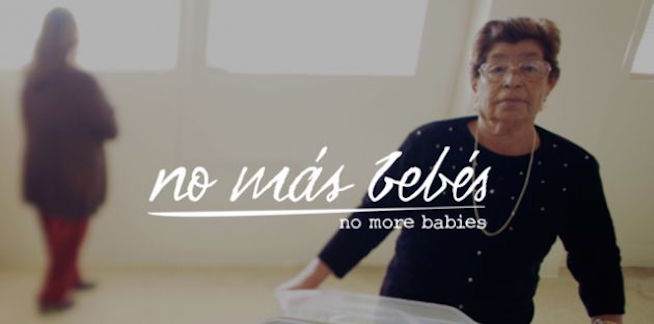The discussion of women’s reproductive health and freedom usually revolves around the topic of abortion rights. However, there are other not so widely discussed issues pertaining to a woman’s right to choose what she does with her own body.
On Oct. 4, the Women’s Resource Center at San Diego State hosted a film screening of the documentary “No Más Bebés” in the Aztec Student Union Theater at Conrad Presbys Aztec Student Union.
The film follows the stories of Mexican immigrant mothers forced into sterilization by doctors after giving birth in Los Angeles County in the late 60s to early 70s.
This was part of a population control program specifically aimed at Hispanic women and women on welfare.
Many of these women were first time mothers in their early 20s when their doctors made them infertile without their knowledge.
One of the women in the film recalled doctors and nurses telling her in Spanish that she and her baby would die if she did not sign the consent forms they gave her, which were in English. She signed them in fear of losing her child.
Antonia Hernandez, a 26-year-old lawyer at the time, began investigating these accusations. Hernandez visited the homes of these women and informed them that they had been sterilized. She asked them to take part in a class action lawsuit against the hospitals that had done these procedures.
In 1975, 10 women filed a lawsuit against the doctors at Los Angeles County-USC Medical Center, the state and the federal government for sterilizing them without their consent.
Although the women lost in the landmark legal battle, it brought to light unethical medical practices and gave a voice to all the women who didn’t have one.
Following this case, hospitals reformed their policies to mandate that consent forms must be signed in the native language of the patient.
The film resonates with a wide audience and explores the issue of women having full reproductive and bodily rights and the right to choose if they want to have children.
“It’s good that they made the film because there needs to be a conversation about it so that sterilization abuse doesn’t happen again, especially to specific communities like people of color,” child and family development junior Karen Huie said.“When it comes to reproductive justice, it’s important to be intersectional when discussing things because certain communities aren’t going to experience the same things as others.”
Following the screening, a three-guest panel answered questions about the film and issues related to women’s reproductive rights in the Latina community.
Virginia Espino, the producer of the film, was one of the panelists. Espino discussed the challenges she faced making the film, as well as how the issues of reproductive freedom are still relevant today.
Although abortion is legal, some states have tried to impede that law by making it difficult for clinics to open and for doctors to practice the procedure.
The challenge is to ensure that reproductive health is practiced widely and that all women have access to it. Espino hopes that film viewers broaden their sense of what reproductive freedom means.
Espino also hopes the film gives a better understanding to the high value that is placed on family by the Mexican community by showing just how impacted these Hispanic women were because they could not have more children.
“The film is at least a window into the human condition and what it’s like to be a Mexican American family, where family is the priority and the major goal in life is to have these relationships because they’re so valuable,” Espino said. “I hope that people get a different view of who we are and what we value, because we definitely are not a homogeneous community and this film represents several cases of how a Mexican family defines and understands itself.”












